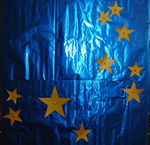For many of us, January 1 is New Year, but it’s only the start of a new year on the Gregorian calendar. Many cultures around the world and here in New Zealand celebrate new year at a different time. The tradition of celebrating the new year as a new beginning goes back to the earliest societies able to record the passage of time.
localeye, the online guide to Christchurch and Canterbury lists local events celebrating the New Year.
Here are some of the main New Year celebrations being held in 2009:
New Zealand New Year
1 January 2009
1 January is the first day of the year in the Gregorian calendar, the most widely-used calendar in the world. The term ‘New Year’s Day’ was adopted in western Europe in the Middle Ages, even though many countries were still renumbering their years on 25 December at that time. Scotland started switching their year on 1 January from 1600, while England and Wales didn’t make the change until 1752. The new system was well-established by the time the Gregorian calendar was introduced to New Zealand by its British settlers.
We have more content on the Gregorian calendar in our digital library.
Muharram - Muslim New Year
29 December 2008 - 1430 AH
18 December 2009 - 1431 AH
The first day of Muharram is the start of the Islamic New Year. The month of Muharram marks the beginning of the Islamic liturgical year. The Islamic year begins on the first day of Muharram, and is counted from the year of the Hegira (anno Hegirae) — the year in which Muhammad emigrated from Mecca to Medina (16 July, 622 A.D.). The new year at the end of 2008 marks the beginning of A.H. 1430.
 Chinese New Year
Chinese New Year
January 26 2009 - Chinese year 4707
The Chinese year 4707 begins on 26 January 2009. Chinese months are calculated by the lunar calendar and each month begins on the darkest day. New Year festivities traditionally start on the first day of the month and continue until the fifteenth (when the moon is brightest) and the traditional lantern festival takes place then.
26 January marks the start of the year of the Ox. The website holymtn.com reports on those born in the Year of the Ox:
The Ox works hard, patiently, and methodically, with original intelligence and reflective thought. These people enjoy helping others. Behind this tenacious, laboring, and self- sacrificing exterior lies an active mind. While their balance and strength inspire confidence, Oxen can seem rigid, obstinate, and slow. They impress others as leaders, fearing neither responsibility nor risk. However, sometimes they must labor long hours to accomplish little. As a result, the Ox can find life's journey laborious and the rewards uncertain.
Famous Oxen: Adolf Hitler, Jack Nicholson, Meryl Streep, Princess Diana, Napoleon
- Year of the Ox
- Information on the character of those born in the Year of the Rat
- Chinese New Year
- Infoplease
- Chinese New Year
- Wikipedia
Hindu New Year
Most Indian regions celebrate New Year's Day according to their regional calendars. Celebrated on the first day of Chaitra, the first month of the year, this day usually falls at the beginning of spring. Hinduism - New Year regional celebrations, an article on Infoplease, explains more about the various celebrations including:
- Navreh - Kashmir New Year
- Nava Varsha - Nepal New Year
- Vishu - Kerala New Year
- Gudi Padwa - Maharashtra New Year
- Ugadi - New Year's day for the people of the Deccan region of India (Andhra Pradesh and Karnataka)
- Bihu - Assam New Year
- Puthandu - Tamil New Year
- Baisakhi - Bengal and Punjab New Year
 Matariki - Māori New Year
Matariki - Māori New Year
24 June 2009
The Maori New Year is marked by the rise of Matariki (the group of stars also known as the Pleiades star cluster or The Seven Sisters) and the sighting of the next new moon. Traditionally, depending on the visibility of Matariki, the coming season's crop was thought to be determined. The brighter the stars indicated the warmer the season would be and thus a more productive crop. It was also seen as an important time for family to gather and reflect on the past and the future.
- Matariki - Māori New Year
- From Christchurch City Libraries
- Matariki
- Māori Language Commission
- Matariki
- Tai Tokerau Tourism
Rosh Hashanah - Jewish New Year
19 - 20 September 2009 Year 5770
Jews begin celebrating one of their most important religious holidays, Rosh Hashanah. It remembers the creation of the world. In Hebrew, Rosh Hashanah means the "head of the year". Sundown on that night marks the beginning of the year 5770 and the month of Tishrei. Jews used the ram's horn (shofar) as a trumpet in Biblical times to announce the new moon, holidays, and war and the shofar is still used on Rosh Hashanah.
- Rosh Hashanah - Jewish New Year
- Infoplease
- Rosh HaShanah
- Information from the Orthodox Union
- Rosh Hashanah
- Wikipedia
- Jewish Holidays Community Calendar 2009
- Orthodox Union
Other New Year's celebrations include Norouz, New Year festival often associated with Zoroastrianism and Parsiism. The festival is celebrated in many countries, including Iran, Iraq, India, and Afghanistan. It usually begins on 21 March. Enkutatash in Ethiopia occurs on Meskerem 1 on the Ethiopian calendar, which is 11 September (or, during a leap year, 12 September). See the listing of New Year celebrations in Wikipedia for more information.
No comments:
Post a Comment